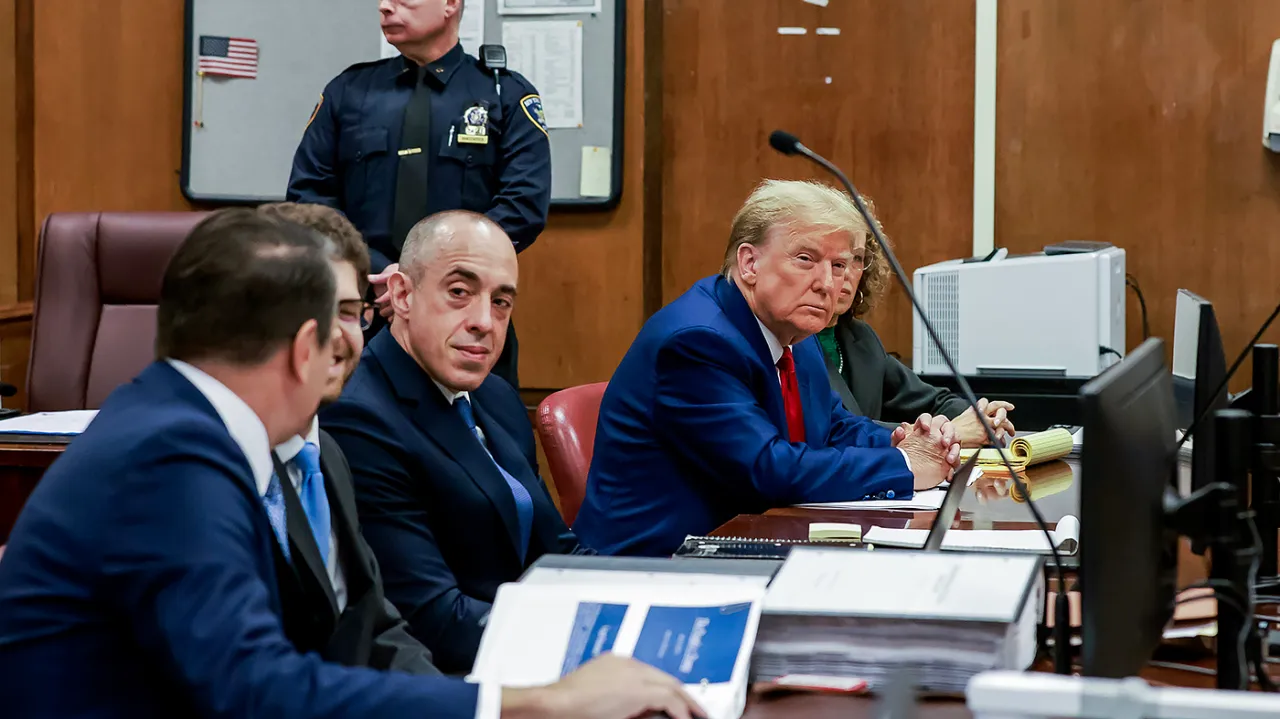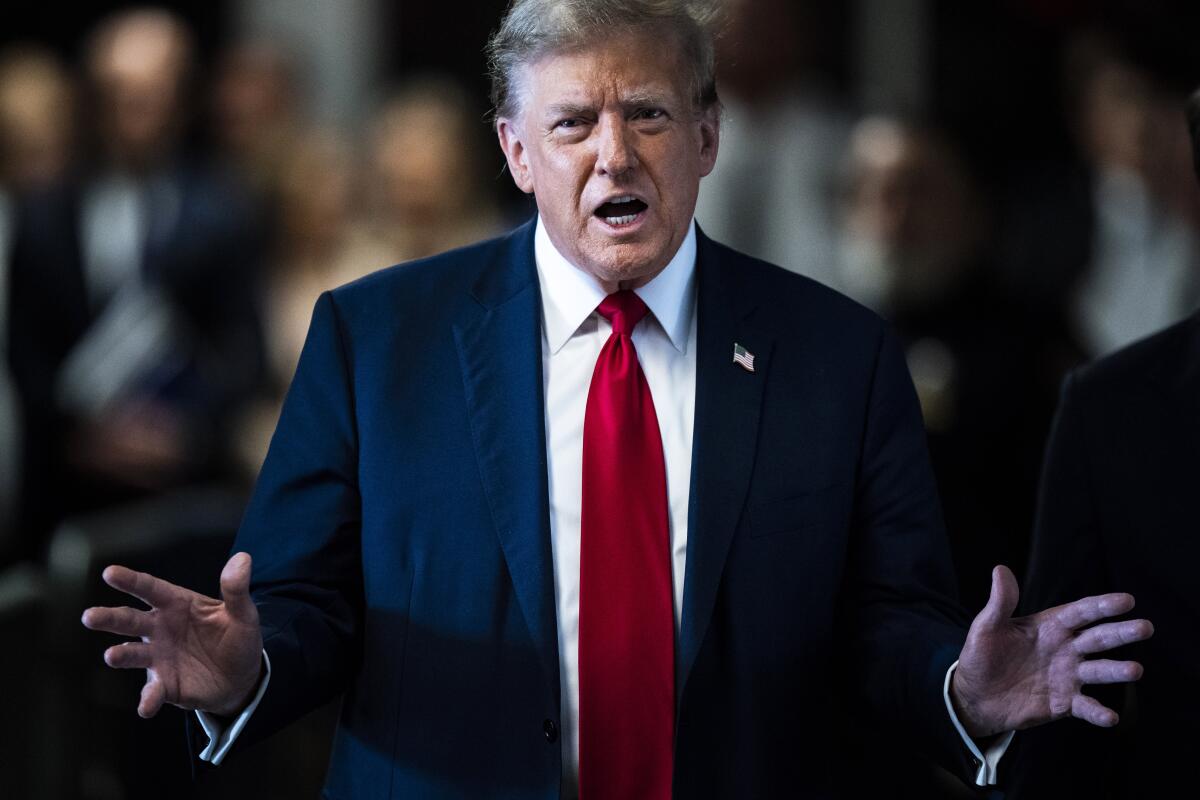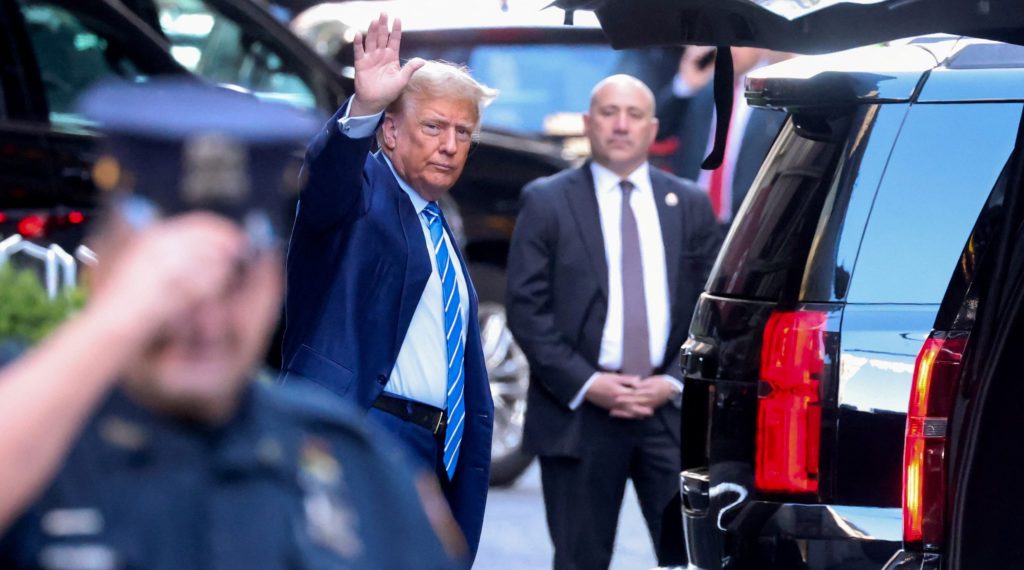Donald Trump‘s ongoing trial focuses on a pivotal issue: whether his hush money payment to Stormy Daniels, facilitated by his lawyer Michael Cohen just before the 2016 election, amounted to an illegal campaign contribution. The outcome pivots on whether prosecutors can prove Trump’s intent.
With Trump denying any encounter with Daniels, his defense argues that the payment was a personal expense to protect his reputation and that of his family.
Prosecutors assert that Trump falsified records to disguise the payment as a legal expense, thus violating campaign finance laws.

The trial, which began with jury selection on Monday, is closely watched as it explores the legality of Trump’s actions and their potential impact on the 2016 election.
Trump faces 34 felony counts of falsifying business records, with prosecutors contending that he knowingly concealed the true nature of the payment.
The key to the prosecution’s case is that Trump was aware of the illegality of the payment and intended to conceal it. Trump’s defense maintains that the payment was legitimate and unrelated to his candidacy.
While Trump’s lawyers argue that the payment was part of a routine legal retainer to Cohen, prosecutors claim it was a deliberate attempt to influence the election.
The trial’s outcome may hinge on the jury’s interpretation of Trump’s intent and the evidence presented by both sides.

Amidst legal maneuvering, Trump has cast the trial as political interference aimed at undermining his 2024 election prospects.
Despite his denials, Cohen’s testimony implicates Trump in directing the hush money payment, adding complexity to the case.
As the trial progresses, both sides seek to sway the jury with their narratives. With Trump’s political future at stake, the trial underscores the legal and political ramifications of his actions, shaping public perception and potentially influencing future elections.





